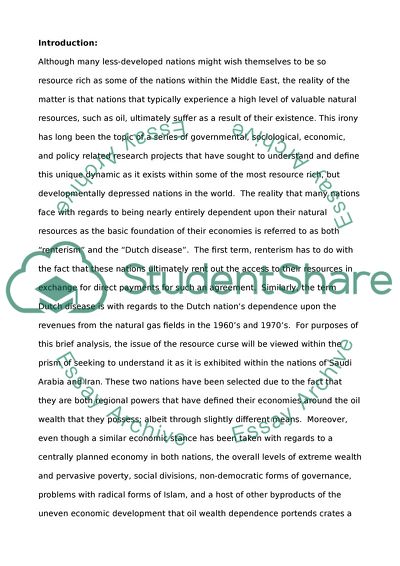Cite this document
(“Oil and Gas - A Resource Curse Essay Example | Topics and Well Written Essays - 3750 words”, n.d.)
Oil and Gas - A Resource Curse Essay Example | Topics and Well Written Essays - 3750 words. Retrieved from https://studentshare.org/environmental-studies/1821967-do-oil-and-gas-help-or-hamper-the-prospects-of-political-and-economic-development-of-hydrocarbon-rich-nations-discuss-with-reference-to-two-cases
Oil and Gas - A Resource Curse Essay Example | Topics and Well Written Essays - 3750 words. Retrieved from https://studentshare.org/environmental-studies/1821967-do-oil-and-gas-help-or-hamper-the-prospects-of-political-and-economic-development-of-hydrocarbon-rich-nations-discuss-with-reference-to-two-cases
(Oil and Gas - A Resource Curse Essay Example | Topics and Well Written Essays - 3750 Words)
Oil and Gas - A Resource Curse Essay Example | Topics and Well Written Essays - 3750 Words. https://studentshare.org/environmental-studies/1821967-do-oil-and-gas-help-or-hamper-the-prospects-of-political-and-economic-development-of-hydrocarbon-rich-nations-discuss-with-reference-to-two-cases.
Oil and Gas - A Resource Curse Essay Example | Topics and Well Written Essays - 3750 Words. https://studentshare.org/environmental-studies/1821967-do-oil-and-gas-help-or-hamper-the-prospects-of-political-and-economic-development-of-hydrocarbon-rich-nations-discuss-with-reference-to-two-cases.
“Oil and Gas - A Resource Curse Essay Example | Topics and Well Written Essays - 3750 Words”, n.d. https://studentshare.org/environmental-studies/1821967-do-oil-and-gas-help-or-hamper-the-prospects-of-political-and-economic-development-of-hydrocarbon-rich-nations-discuss-with-reference-to-two-cases.


